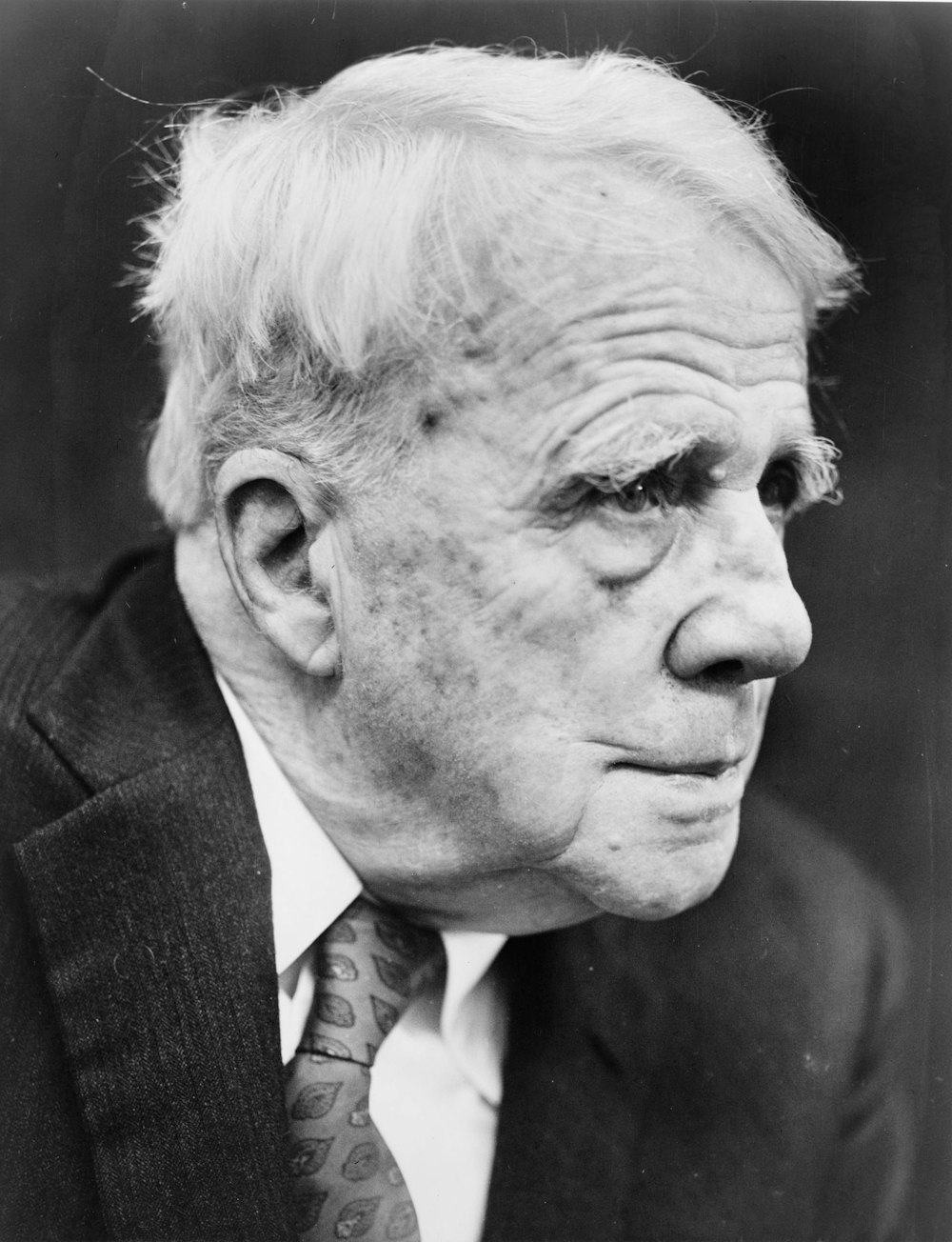By Robert Frost When a friend calls to me from the road And slows his horse to a meaning walk, I don’t stand still and look around On all the hills I haven’t hoed, And shout from where I am, What is it? No, not as there is a time to talk. I thrust my hoe in the mellow ground, Blade-end up and five feet tall, And plod: I go up to the stone wall For a friendly visit. This poem is in the public domain. After leaving school, he worked as a teacher, cobbler, and editor of the Lawrence “Sentinel”. His first published poem, “My Butterfly”, appeared on November 8, 1894, in the New York newspaper “The Independent”. In 1913 he published a full-length collection of poetry, A Boy’s Will, followed in 1914 by North of Boston, thereby establishing his reputation. By the 1920s, he was the most celebrated poet in the United States. His honors include four Pulitzer Prizes for Poetry. Frost served as a consultant in poetry to the Library of Congress from 1958-1959. In 1962, he was presented the Congressional Gold Medal. President John F. Kennedy, at whose inauguration Frost delivered a poem, said of the poet, “He saw poetry as the means of saving power from itself. When power leads man toward arrogance, poetry reminds him of his limitations. When power narrows the areas of man’s concern, poetry reminds him of the richness and diversity of his existence. When power corrupts, poetry cleanses.” Robert Frost died in Boston on January 29, 1963.A Time to Talk

About the poet: Robert Frost was born on March 26, 1874, in San Francisco. At age eleven, his family moved to Lawrence, Massachusetts, where he became interested in reading and writing poetry during his high school years. He enrolled at Dartmouth College in Hanover, New Hampshire, and later at Harvard University, though he never earned a formal degree.